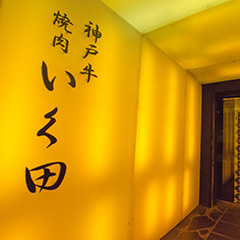TRG Info and Advice
So You Married a Chonan (the eldest son) Part 3
Language Issues are Just the Tip of the Iceberg
As may be true even for couples who grew up in the same Midwestern town, differences in the way you were raised, including: table manners, discipline, education and other issues you didn’t even know you cared about, are likely to develop when you have been together for a while, or start to have kids. In the face of a culture like Japan’s, where the best/most polite/most efficient/most economical way to do things was already decided two thousand years ago, being a free-thinking American can be tough. Try assimilating to some behaviors and holding your ground on the ones that are truly important to you. Choose your battles wisely.
Table Manners (on Mars!)
You may have been raised to put your hand and napkin in your lap and not slurp your soup, but those behaviors are likely to clash with standard Japanese table manners. Small dishes and foods with a variety of textures (think: slimy!), paired with the use of chopsticks, make the custom of bringing your bowl or small plate close to your mouth a mess-saver! Using two hands to hold a cup and sucking in air along with the hot tea, a tongue-saver! Scraping the last bit of curry and rice from a large plate directly into your mouth, however, is embarrassing in both Japan and the US, and maybe even on Mars!
It can be a challenge to get kids (and sometimes adults) to eat properly without making mealtimes a manners school everyone wants to escape, but these exceptional, international brains can handle it! Point out the differences in what is acceptable in your respective countries from an early age. Try to provide opportunities to practice good manners at home, at restaurants, and at friends and relatives houses so that kids learn to handle themselves in a variety of situations, or play “restaurant.” Use the praise sandwich method (compliment, constructive criticism, compliment). Have a weekly quiz on etiquette. Demonstrate examples of good and bad manners (for both Japan and your home country), or set up scenarios and have the kids choose the correct behavior. When the kids get older, have them think of the questions. Point out that (future) diplomats and (future) translators for important people need to be well-versed in the manners of various countries so that they don’t embarrass themselves or their hosts at fancy dinners.
The ultimate goal, of course, is to equip your kids with the ability to do what is appropriate, where it is appropriate. So, when in Japan, sit on the floor, on your knees, at a low table. Hold your rice bowl. Slurp your tea and soup. Master the use of chopsticks to the point where you can get every last mama-tsubu (grain of rice). Show your kids that you are making an effort to have great Japanese manners and try not to bristle when your husband corrects the way you hold your chopsticks (wink, wink). Support your husband’s efforts to train the children in proper Japanese manners, too, and then, when it comes time to visit YOUR family, he will be more likely to assist your efforts.
Managing Monsters
There are as many ways to parent as there are types of kids, but one piece of advice seems constant: parents need to support each other and (at least) appear to be on the same side! An overwhelming majority of parenting, books, websites and “experts” tout the theory that presenting a united front makes kids feel safe and secure. But, what if your upbringings are so fundamentally different that you really disagree about discipline. And you can’t keep quiet about it. Even when the kids are right there! Apparently, this can lead to all sorts of problems for your kids: academic, social, behavioral. Ugh! As if being biracial in Japan isn’t enough already…
Try taking one of the many “What’s Your Parenting Style” quizzes online, and have your husband take it, too. You may find out you agree more than you thought, and just have different ways of expressing it. As parenting is the first step towards socialization, it is wholly influenced by the surrounding culture. Mainstream Japan’s parenting approach reflects that of a culture where self-regulation, interdependence, and concern for others is valued. In the West, the opposite tends to be true, with a focus on independence and self-expression. These two, dichotomous approaches to parenting can lead to some confused kids! Is it possible to combine these two styles, creating the perfect mix? Most people would agree that both self-regulation and independence are desirable traits. So, maybe the solution is to have a good balance of times when Mommy is in charge, and times when it’s Daddy’s turn.
If you are living in Japan, however, your kids will probably be influenced heartily by their school experiences, and may have some trouble balancing your parenting style with their classmates’ upbringing and teachers’ expectations. For example, the idea of “finders keepers, losers weepers,” is pretty foreign to a majority of Japanese kids! Teachers, too, especially in rural areas, may not realize some of the social and educational hardships of being bilingual and biracial. Again, communicating with your child about the potential for these culture clashes from an early age will help him/her process and work through some difficult interactions with peers, teachers and other members of the community. Making yourself available as the “resident foreigner” for your child’s community can also help foster mutual understanding and appreciation for your family’s unique situation.
How Far Will You Go?
How about parental involvement in things like homework and school projects? Japanese moms (and dads, too!) often seem to think that kids are unable to do this stuff on their own. From a Western perspective, doing your kid’s homework seems to lead to kids believing they cannot complete an assignment or project without help, creating an endless cycle of unhealthy dependence, which, in turn, can develop into apathy and low self-esteem. As a foreign mom, there is definitely a limit as to what subjects you can help with, but when the “Summer Challenge Exhibition” rolls around and your child’s, obviously child-constructed birdhouse has to sit next to his classmate’s near-professional, clay model of fish guts, well, a small tsunami of guilt may wash over you. Determining your role in your children’s education will, most likely, be an ongoing discussion/battle. Dividing the responsibilities into Japanese (your husband is in charge of anything related to the kids’ Japanese education) and English (your department) can help clarify who needs to step up to make sure things get done.
And don’t forget your own family’s issues or concerns with all things Japanese!
While your Japanese in-laws may question your insistence on making sure your kids speak English, know how to cut meat with a knife and fork, and think for themselves, your own, birth family may have issues about things you decide to do the Japanese way, for instance, sleeping arrangements.
Typically, Japanese families sleep all together in one room, on separate futons. Babies and small children usually sleep with their mothers, especially if/while they are nursing. Sometimes a “king-sized” futon is special-ordered, or two single futons are held together with a large fitted sheet or cover, to make a big bed, and a married couple will sleep with their child in between, in the Chinese character for river pattern 川. Co-sleeping is still not the mainstream in the Western world, and especially not in the US where the American Academy of Pediatrics warns against it (although they do like the idea of sleeping in the same room with your baby!). The importance of body heat in homes where rooms are heated sparingly, the fact that falling out of a futon on the floor is much safer than falling out of a bed, and the cultural focus on interdependence, as opposed to independence, are all factors that support co-sleeping as the accepted norm in Japan.
This practice may make sense to a Western woman raising children in Japan, but may cause a lot of eye-brow lifting at the family Christmas gathering back home. Concerns may include, not only the suffocation or “smooshing” of the baby, but also worry for the married couples’ intimacy. For every newspaper article your father sends you on the dangers, though, there are blogs or websites about why the practice of co-sleeping is increasing, even in the States, and how, if it’s done right, it can benefit the whole family!
As for intimacy between married couples…obviously, if you are all sleeping in the same room, physical intimacy can be a challenge, and the prevalence of sexless marriages is cited as one reason for Japan’s declining population. Cultural pressure to put kids and career before your spouse is another factor. Emphasis on the importance of the (near symbiotic) mother-child relationship puts extra pressure on moms, and can also lead to a reduced sex-drive. Japan is notorious for clocking 100 hour work weeks, which makes going out on a date with your spouse a challenge, too. Finding someone to watch the kids is another issue. High school kids are too busy studying, or messing with their smartphones, to take a babysitting job, and your Japanese friends and neighbors would probably be appalled to hear you left your kids ALONE with a near-stranger, anyway! Meeting friends for lunch a few times a month, while the kids are in school or daycare, is a much likelier scenario. And we all know what (who) women LOVE to talk about when they get gabby. Seriously, though, utilize your sounding boards, for your own health and sanity!






